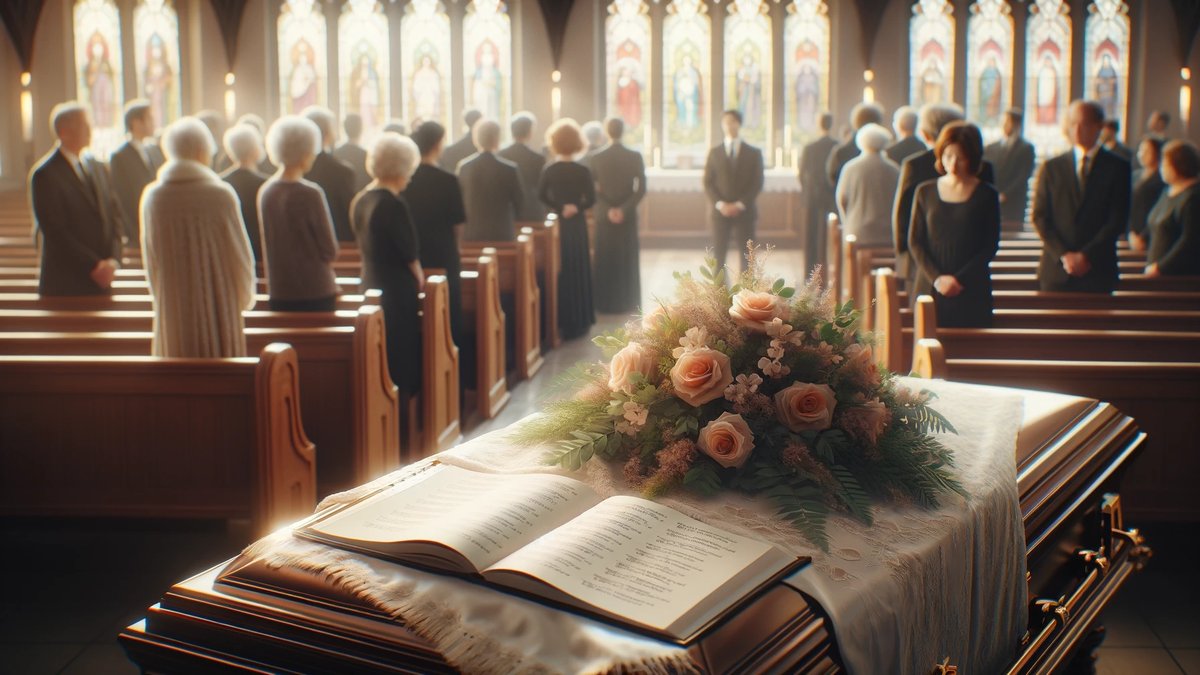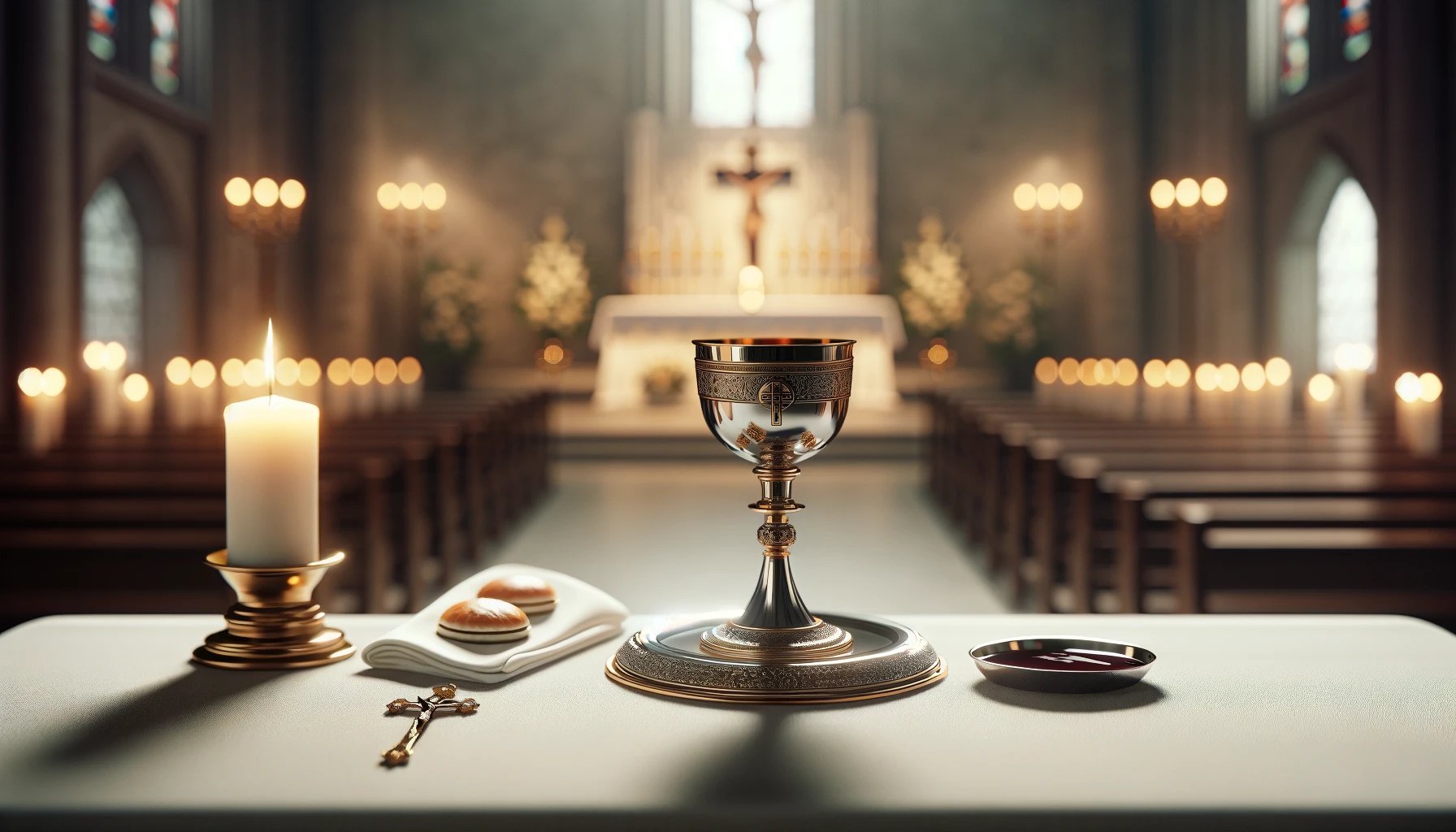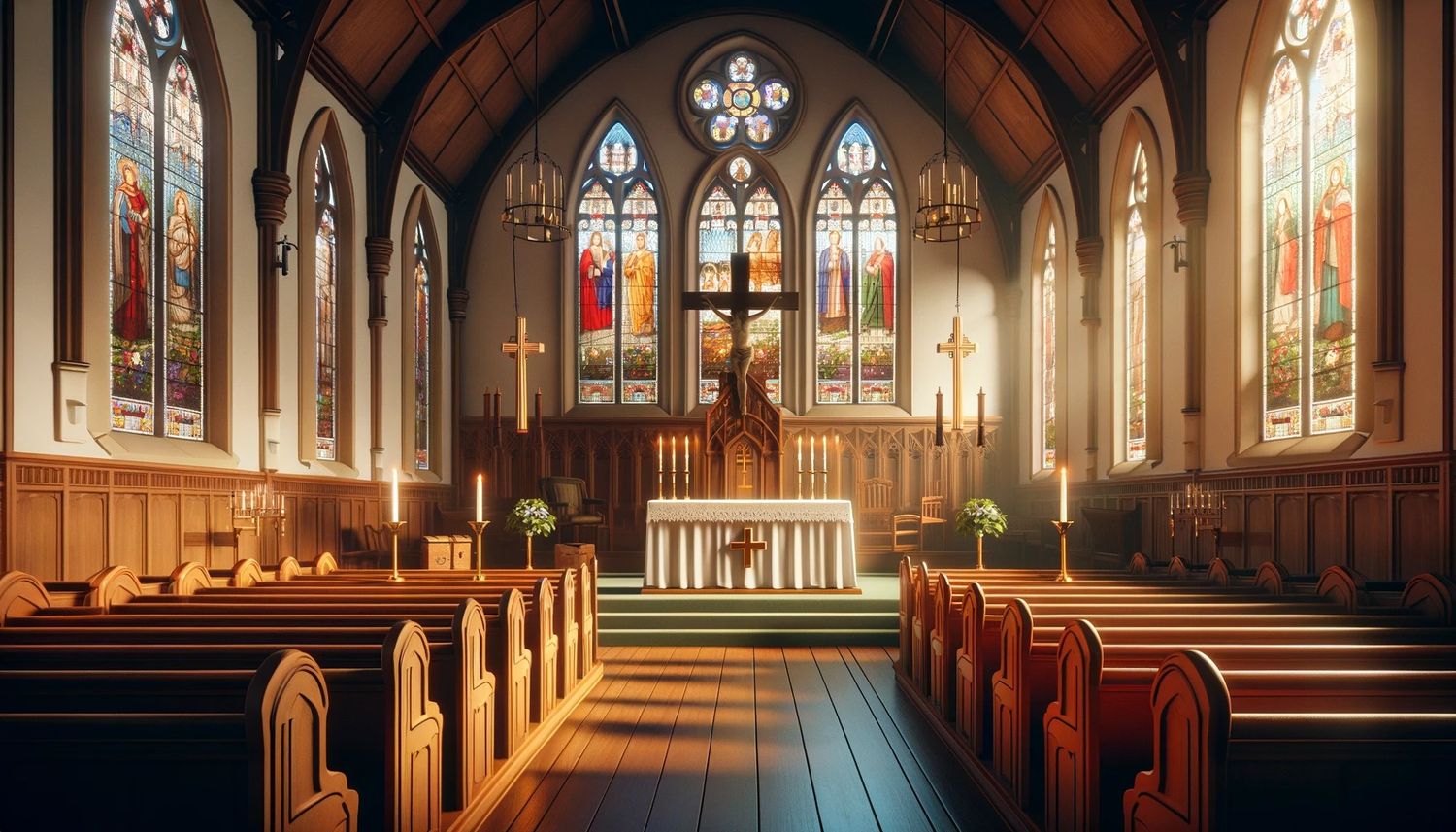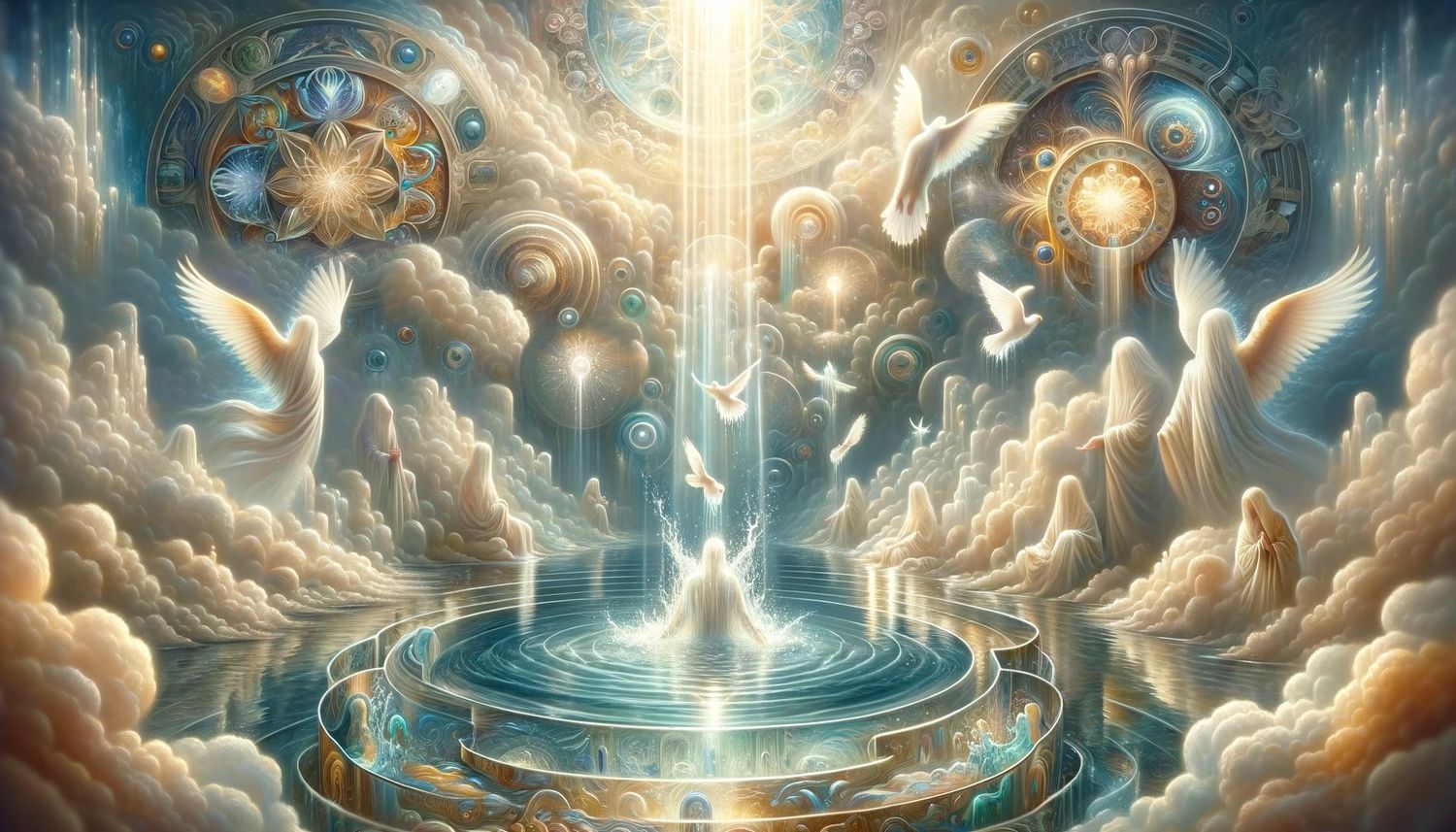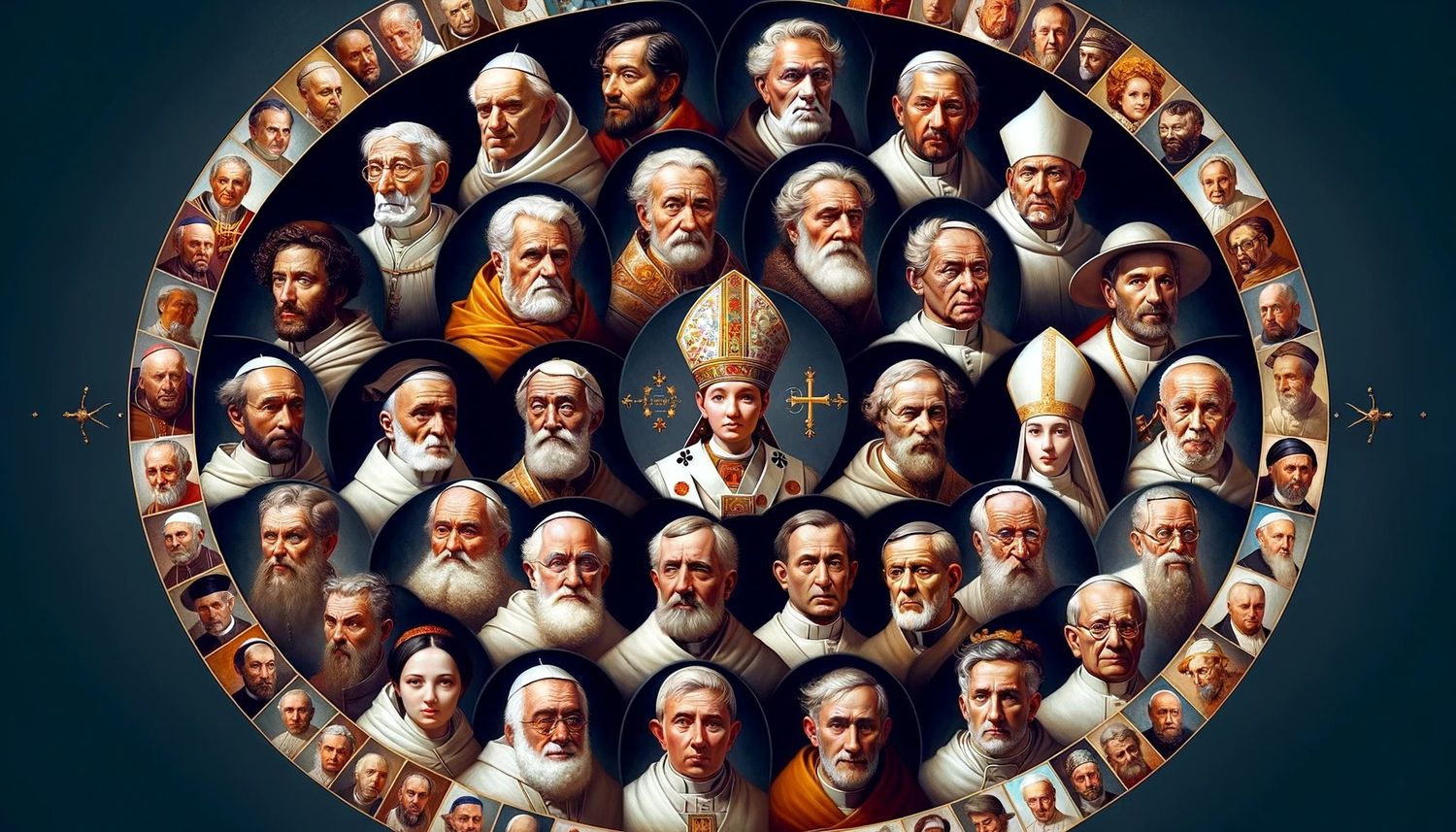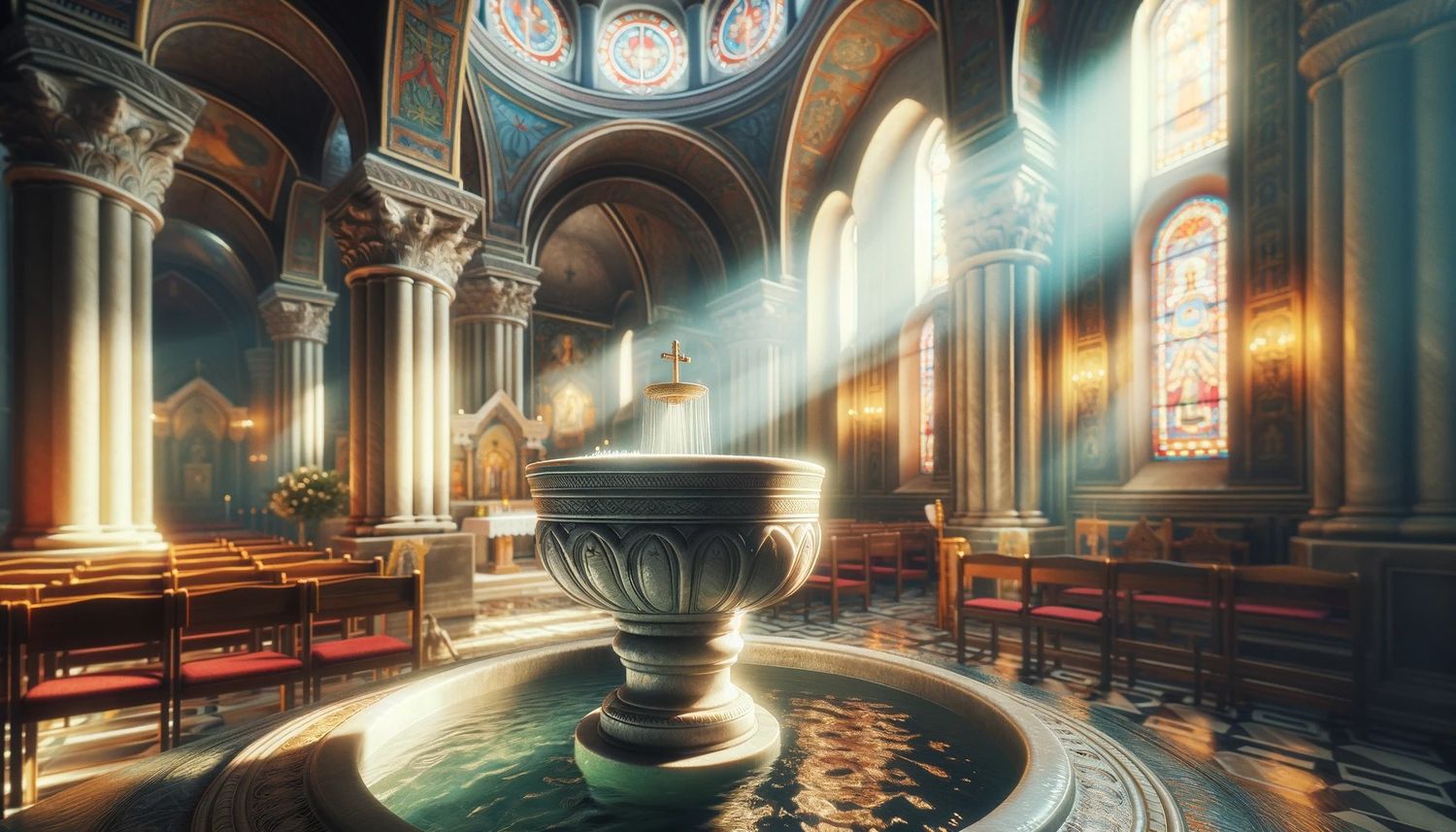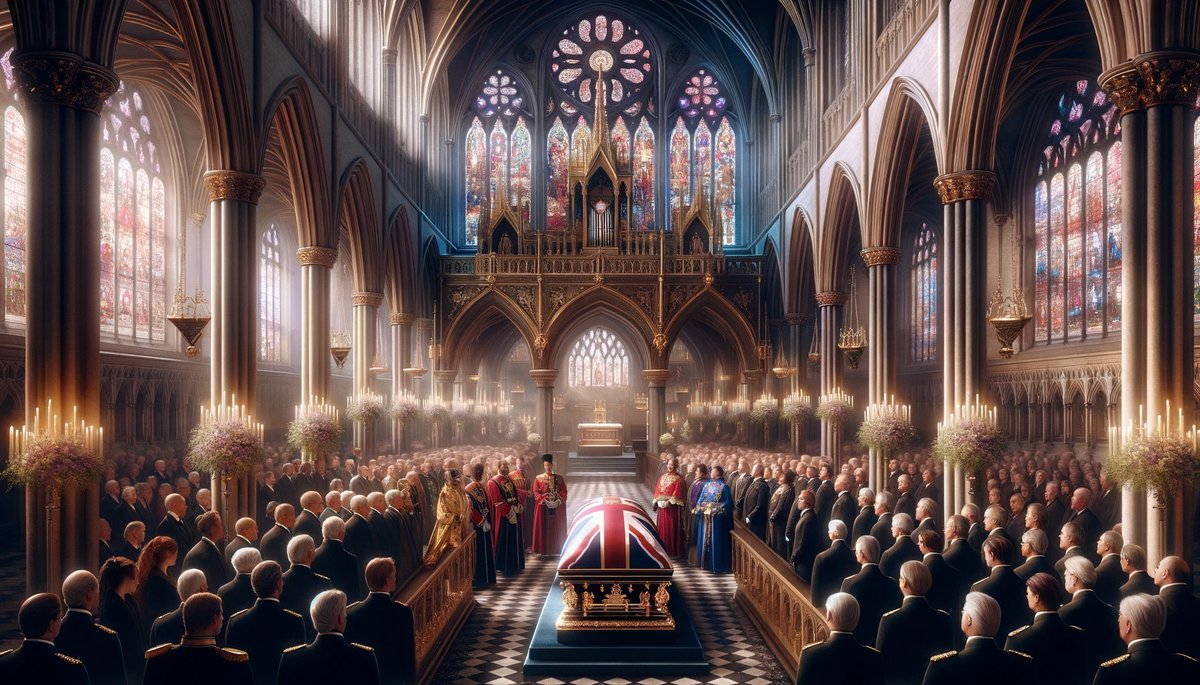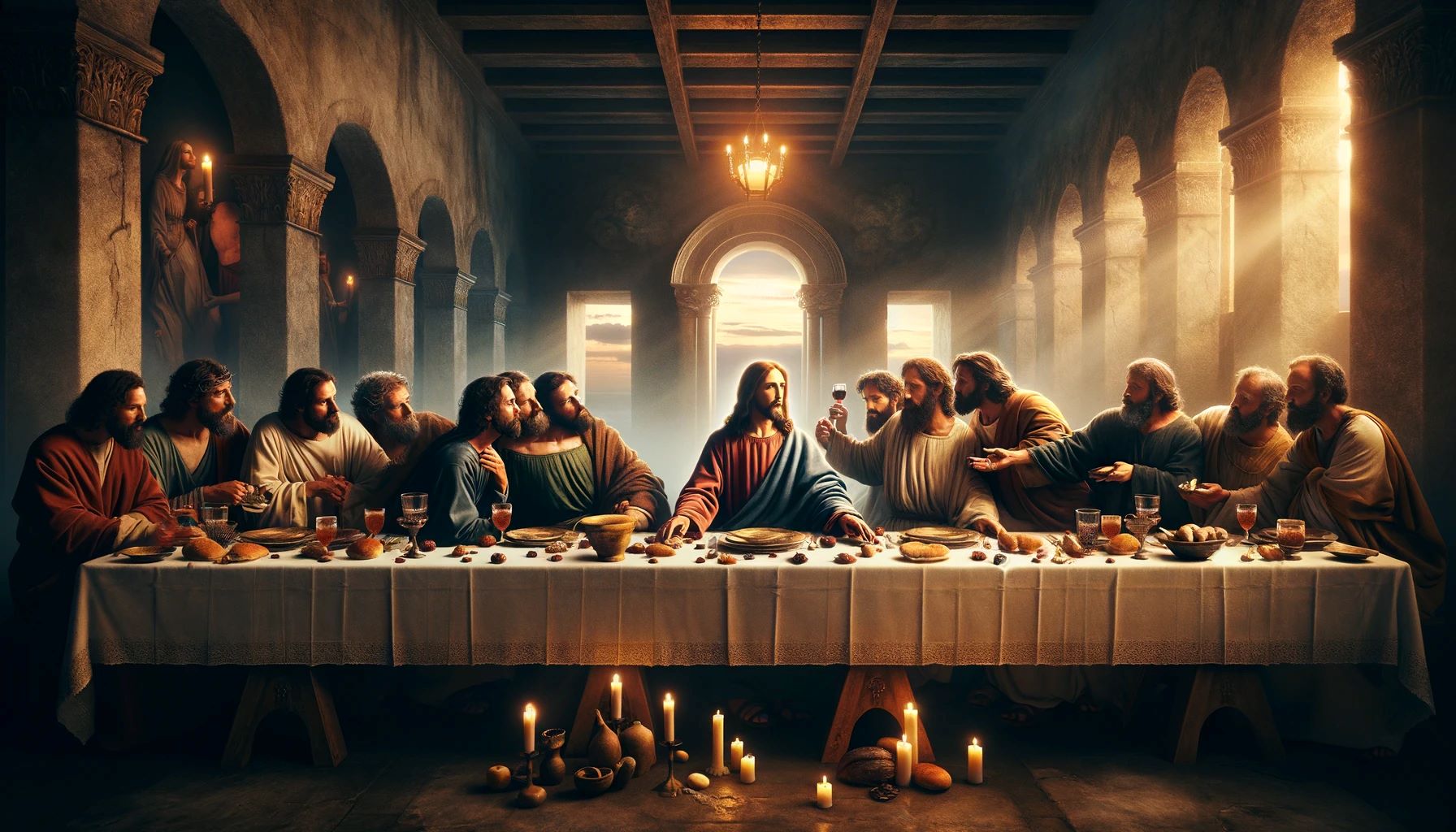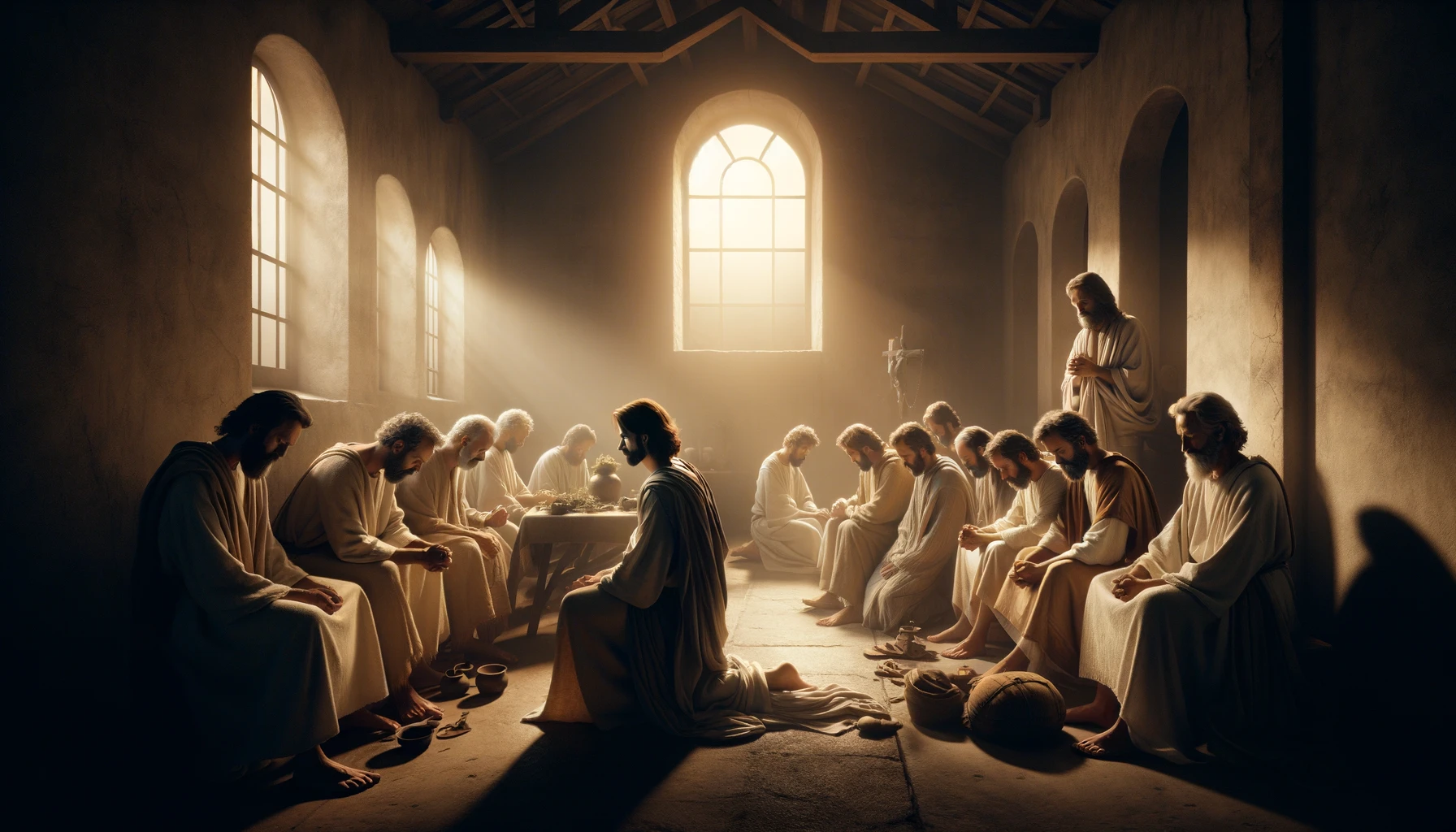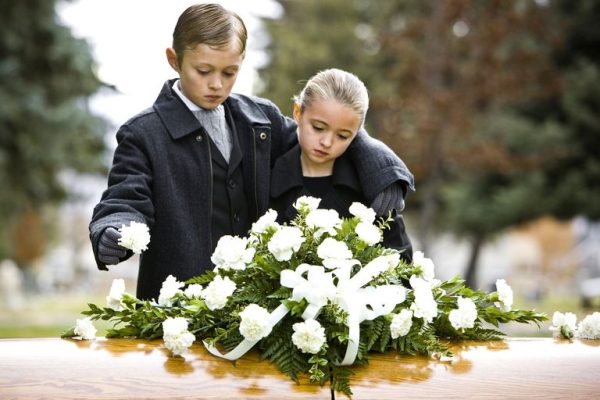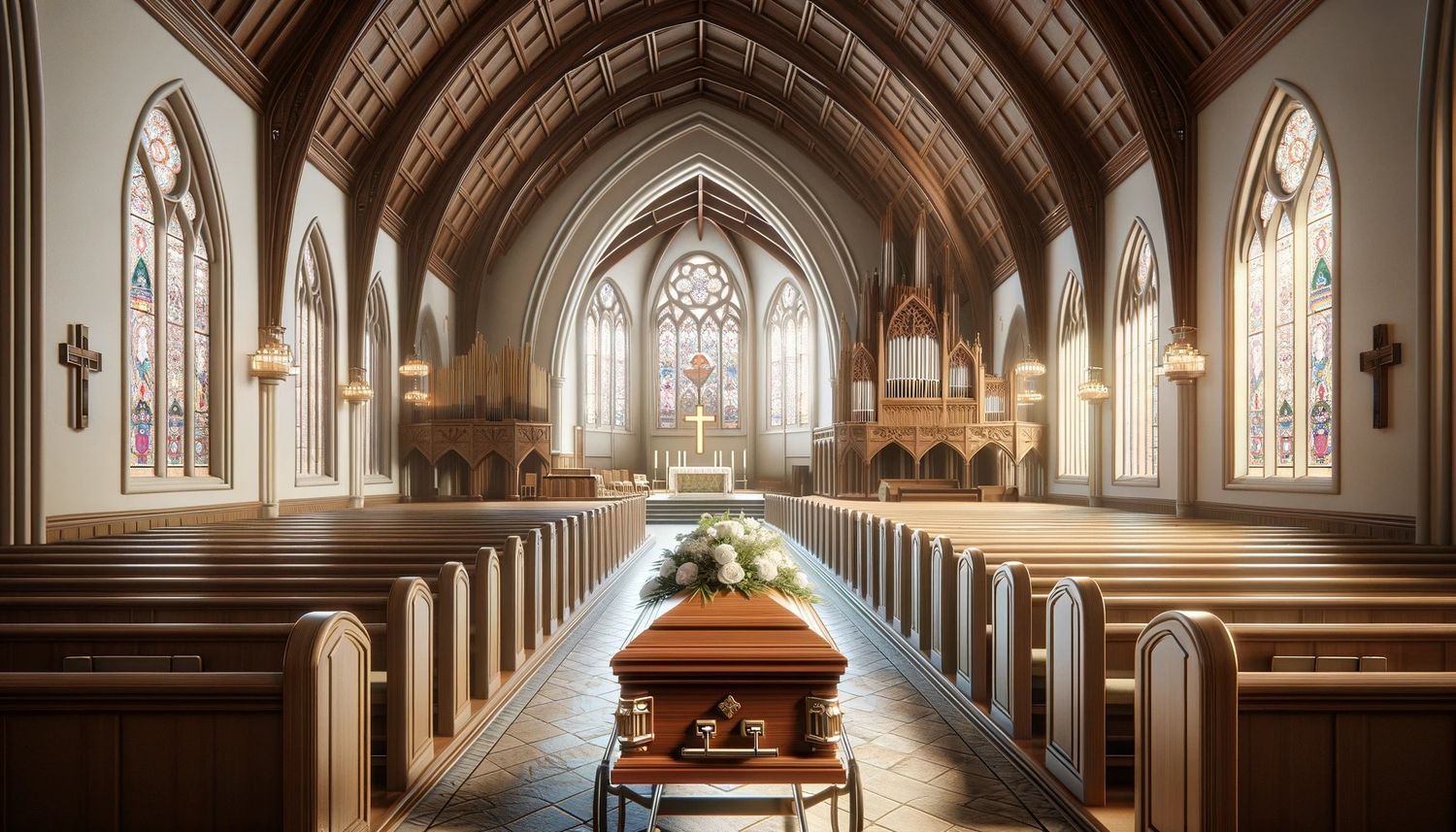Home>Theology and Spirituality>In Catholicism, What Is The Name Of The Funeral Service
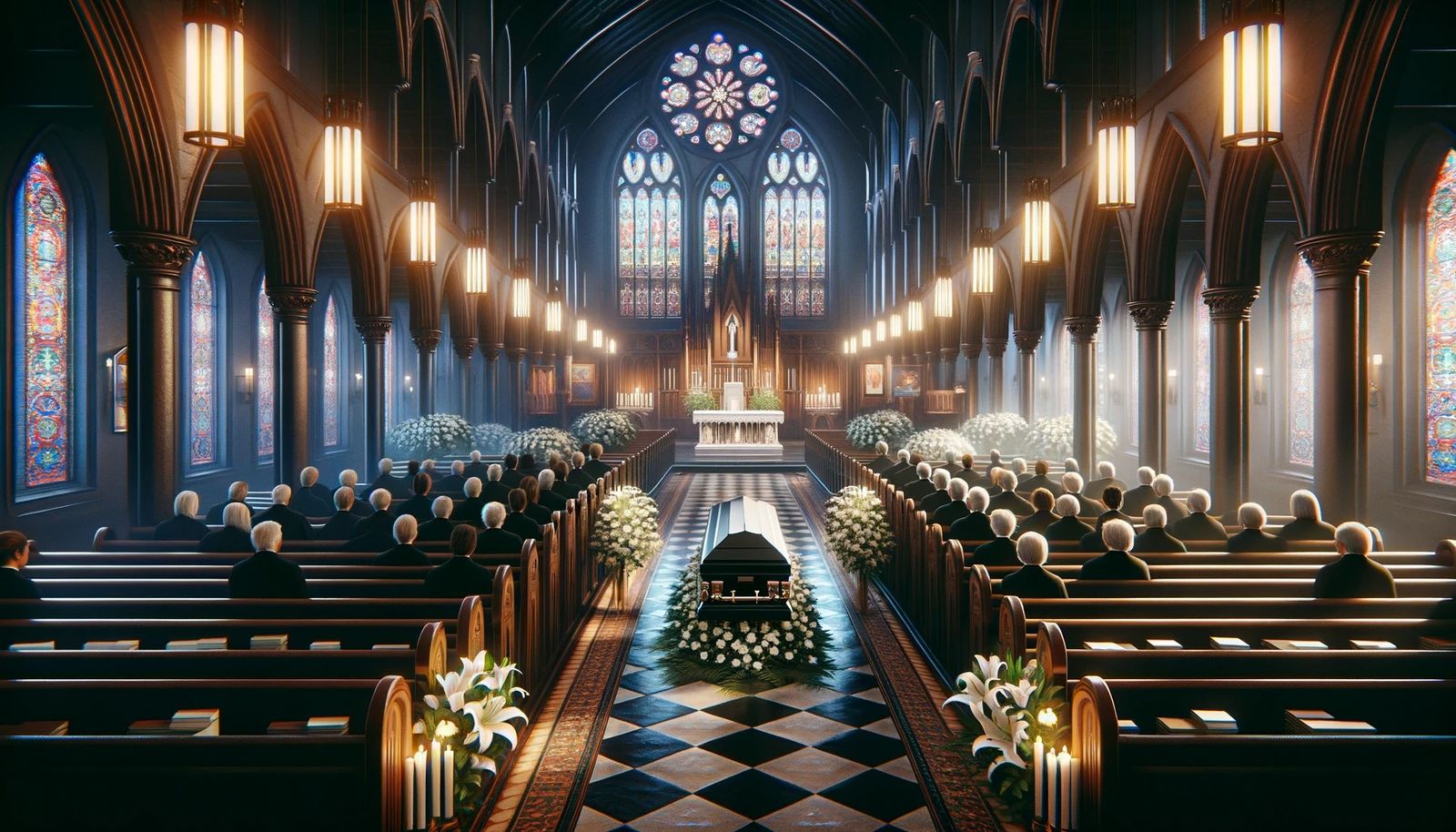

Theology and Spirituality
In Catholicism, What Is The Name Of The Funeral Service
Published: February 15, 2024
Peter Smith, Editorial Director at Christian.net, combines deep insights into faith, politics, and culture to lead content creation that resonates widely. Awarded for his contributions to religious discourse, he previously headed a major organization for religious communicators, enhancing dialogue on faith's societal impacts.
Learn about the funeral service in Catholicism and its significance in theology and spirituality. Understand the rituals and traditions associated with Catholic funerals.
(Many of the links in this article redirect to a specific reviewed product. Your purchase of these products through affiliate links helps to generate commission for Christian.net, at no extra cost. Learn more)
Table of Contents
Introduction
In Catholicism, the funeral service holds profound significance, serving as a sacred rite to honor the departed and provide solace to the bereaved. Rooted in centuries-old traditions and rich symbolism, the Catholic funeral encompasses various rituals that offer a sense of closure and hope in the face of loss.
The Catholic Church views death as a transition from earthly life to eternal life, emphasizing the importance of praying for the deceased and offering support to the grieving community. The funeral rites not only commemorate the life of the departed but also express the Church's belief in the resurrection and the promise of everlasting life in the presence of God.
Throughout the funeral service, the Catholic faith underscores the themes of faith, hope, and love, guiding mourners through their grief while affirming the deceased's journey into the embrace of divine mercy. The rituals and prayers woven into the funeral service reflect the Church's teachings on the sanctity of life, the mercy of God, and the communion of saints, fostering a sense of unity and spiritual solidarity among the faithful.
As we delve into the intricacies of the Catholic funeral service, we will explore the three primary components that form the foundation of this sacred rite: the Funeral Mass, the Vigil for the Deceased, and the Rite of Committal. Each of these elements plays a distinct role in honoring the departed, comforting the living, and affirming the Christian belief in the resurrection and the life to come.
Join us on this enlightening journey as we unravel the profound customs and spiritual significance of the Catholic funeral service, delving into the timeless traditions that offer solace, hope, and a sense of eternal connection within the tapestry of faith and remembrance.
Read more: What Is A Lenten Service?
The Catholic Funeral Mass
The Catholic Funeral Mass, also known as the Requiem Mass, stands as a central and sacred element of the Catholic funeral service. Rooted in rich symbolism and profound spiritual significance, this solemn liturgy serves as a poignant tribute to the departed, offering solace to the grieving and affirming the Church's teachings on the resurrection and the promise of eternal life.
A Sacred Commemoration
The Funeral Mass unfolds within the hallowed confines of the church, where mourners gather to honor the life and legacy of the deceased. The ceremony begins with the reception of the body, as a solemn procession accompanies the casket into the sanctuary, signifying the community's embrace of the departed and their journey into the loving embrace of God.
Liturgical Elements
The liturgy of the Funeral Mass is imbued with profound symbolism and spiritual depth. The readings from the Holy Scriptures, carefully selected for their relevance and comfort, offer timeless wisdom and solace to those in mourning. The homily, delivered by the presiding clergy, provides a reflection on the deceased's life, emphasizing the Christian virtues of faith, hope, and love.
Eucharistic Celebration
Central to the Funeral Mass is the Eucharistic celebration, where the faithful partake in the sacrament of the Holy Communion. This sacred rite underscores the Church's belief in the resurrection and the eternal life promised through the sacrifice of Christ. As the congregation receives the Body and Blood of Christ, they are reminded of the profound bond that transcends earthly existence, affirming the communion of saints and the enduring presence of the departed within the mystical body of Christ.
Read more: What Is A Communion Service
Prayers for the Departed
Throughout the Funeral Mass, prayers are offered for the soul of the departed, invoking God's mercy and grace upon them. The litany of supplications and intercessions reflects the Church's unwavering commitment to accompany the deceased with prayers and commend them to the loving care of God.
A Testament to Faith and Hope
In essence, the Catholic Funeral Mass serves as a testament to the enduring faith and hope that permeate the fabric of Christian belief. It offers a profound expression of love and remembrance, affirming the Church's teachings on the sanctity of life and the promise of eternal reunion in the presence of God.
A Timeless Tradition
As the Funeral Mass draws to a close, the community embraces the bereaved with compassion and support, recognizing that the journey of grief continues beyond the confines of the church. The timeless tradition of the Catholic Funeral Mass stands as a beacon of hope, guiding the faithful through the depths of loss and affirming the promise of eternal life in the embrace of divine love.
In the sacred liturgy of the Funeral Mass, the Catholic faith finds poignant expression, weaving together the threads of remembrance, hope, and eternal communion within the tapestry of faith and love.
The Vigil for the Deceased
The Vigil for the Deceased, also known as the Wake or Visitation, holds a sacred place within the Catholic funeral rites, offering a poignant opportunity for the community to gather in remembrance and prayer. This solemn gathering typically takes place in the presence of the deceased, providing a space for family, friends, and fellow parishioners to offer their condolences, share cherished memories, and seek solace in the embrace of faith.
The Vigil often unfolds in the hallowed setting of the funeral home or the parish church, where the body of the departed lies in repose, adorned with symbols of faith and surrounded by flickering candles, evoking a sense of reverence and spiritual contemplation. Mourners, guided by the gentle glow of candlelight, come together to honor the life of the departed and offer their support to the grieving family.
Central to the Vigil is the recitation of the Rosary, a cherished Catholic tradition that intertwines prayer and meditation. The gentle rhythm of the prayers, accompanied by the soothing cadence of the decades, creates a sacred space for reflection and spiritual communion. As the mourners unite in the recitation of the Rosary, they find solace in the timeless words of devotion, seeking comfort in the embrace of divine mercy and the promise of eternal life.
Amidst the gentle whispers of prayer, the Vigil becomes a sanctuary of remembrance, where stories of the departed are shared, laughter mingles with tears, and the legacy of a life well-lived is celebrated. Through heartfelt eulogies and shared anecdotes, the community weaves a tapestry of love and remembrance, affirming the enduring impact of the departed on the lives of those they touched.
The Vigil for the Deceased stands as a testament to the Catholic belief in the communion of saints, where the living and the departed are united in a bond of love and prayer. As the gentle flicker of candles illuminates the path of remembrance, the Vigil becomes a sacred journey of healing and hope, guiding the faithful through the depths of grief and affirming the promise of eternal peace in the embrace of divine love.
In the timeless traditions of the Vigil for the Deceased, the Catholic faithful find solace and spiritual unity, embracing the legacy of the departed with reverence and love.
The Rite of Committal
The Rite of Committal, the final stage of the Catholic funeral rites, holds profound significance as the community accompanies the departed to their final resting place. This sacred ritual, often conducted at the graveside or the place of interment, serves as a poignant culmination of the funeral journey, affirming the Church's teachings on the resurrection and the promise of eternal life.
As the mourners gather at the graveside, the presiding clergy offers prayers of commendation, invoking God's mercy and grace upon the departed. The timeless words of scripture resonate through the hallowed grounds, offering solace and hope to those who have gathered to bid farewell. The Rite of Committal underscores the Church's belief in the sanctity of the human body, affirming that even in death, the departed are cherished and entrusted to the loving care of God.
Central to the Rite of Committal is the act of commending the deceased to the earth, a solemn gesture that symbolizes the return of the earthly remains to the embrace of the Creator. The gentle descent of the casket into the earth becomes a poignant expression of the community's acceptance of the natural cycle of life and death, affirming the Christian belief in the resurrection and the promise of new life in the presence of God.
Amidst the tender embrace of nature, the Rite of Committal becomes a sacred moment of farewell, where the community offers their final prayers and blessings to the departed. The earth, now entrusted with the earthly remains, becomes a hallowed sanctuary, a place of rest and remembrance where the departed find peace and eternal repose.
As the Rite of Committal draws to a close, the community lingers in quiet reflection, finding solace in the enduring promise of faith and the communion of saints. The timeless traditions of the Catholic funeral rites find poignant expression in this sacred ritual, guiding the faithful through the depths of loss and affirming the promise of eternal life in the embrace of divine love.
In the gentle cadence of prayers and the tender embrace of nature, the Rite of Committal becomes a testament to the enduring hope and faith that permeate the fabric of Catholic belief, offering solace and spiritual unity to all who gather to honor the departed.
